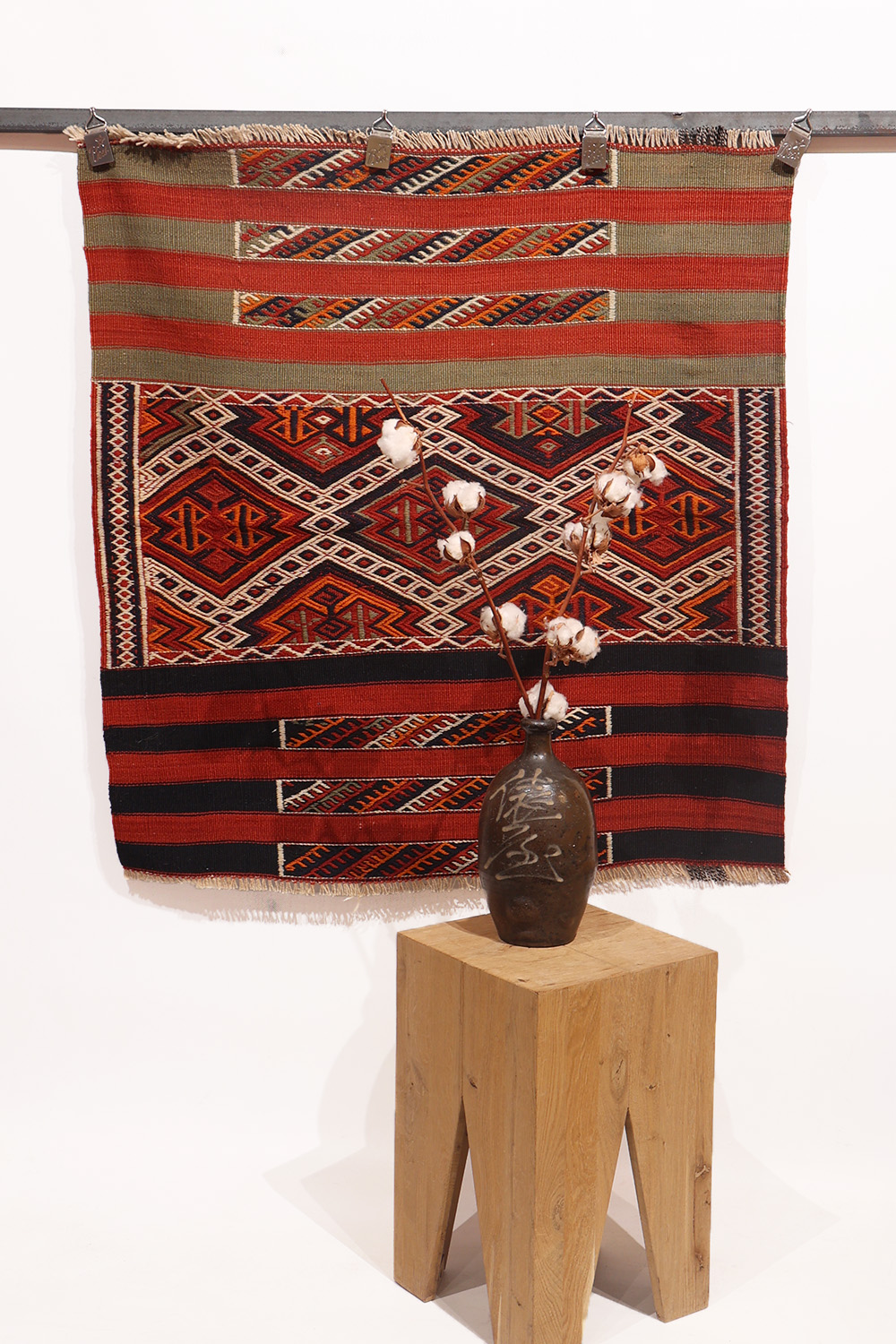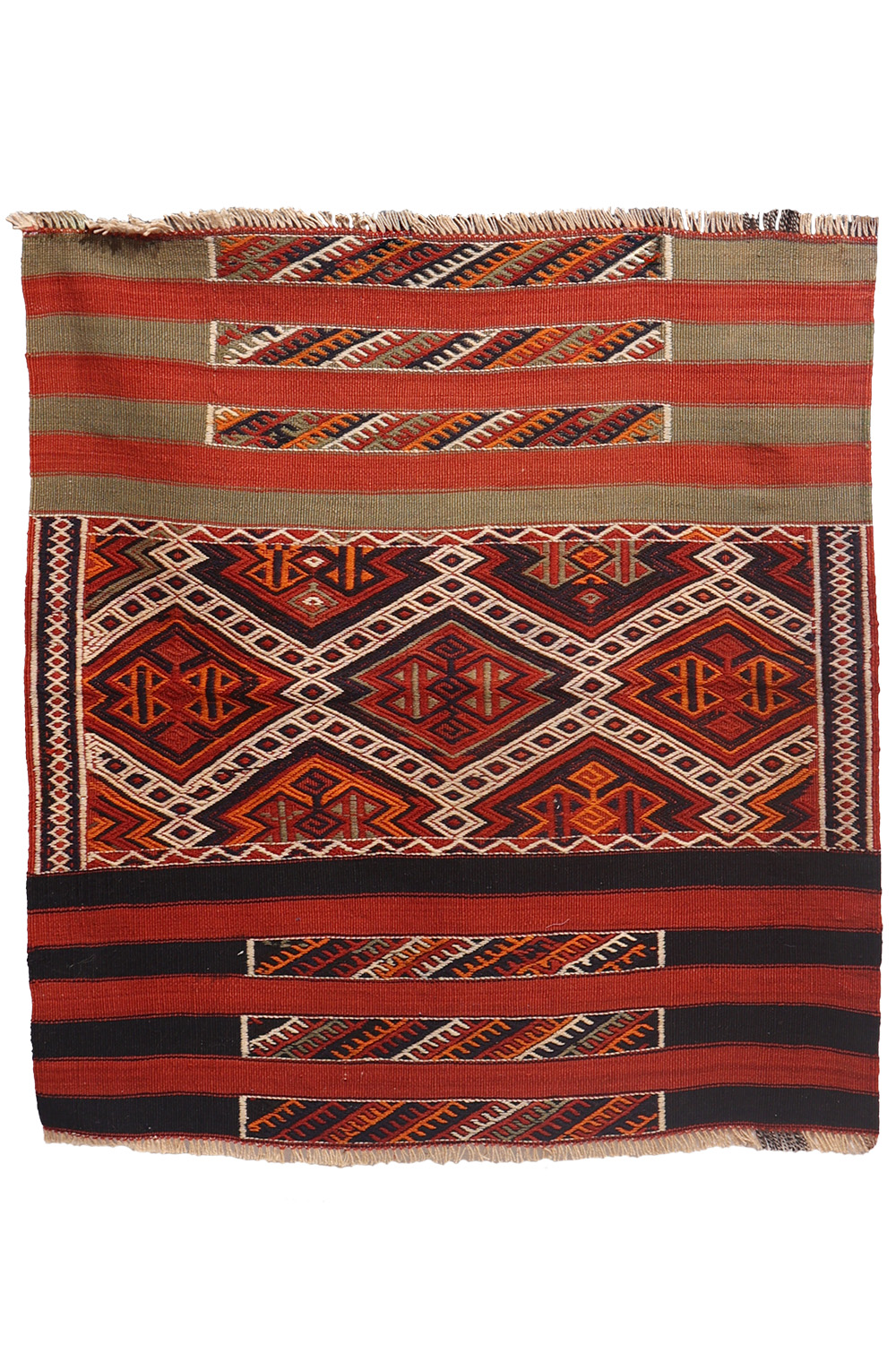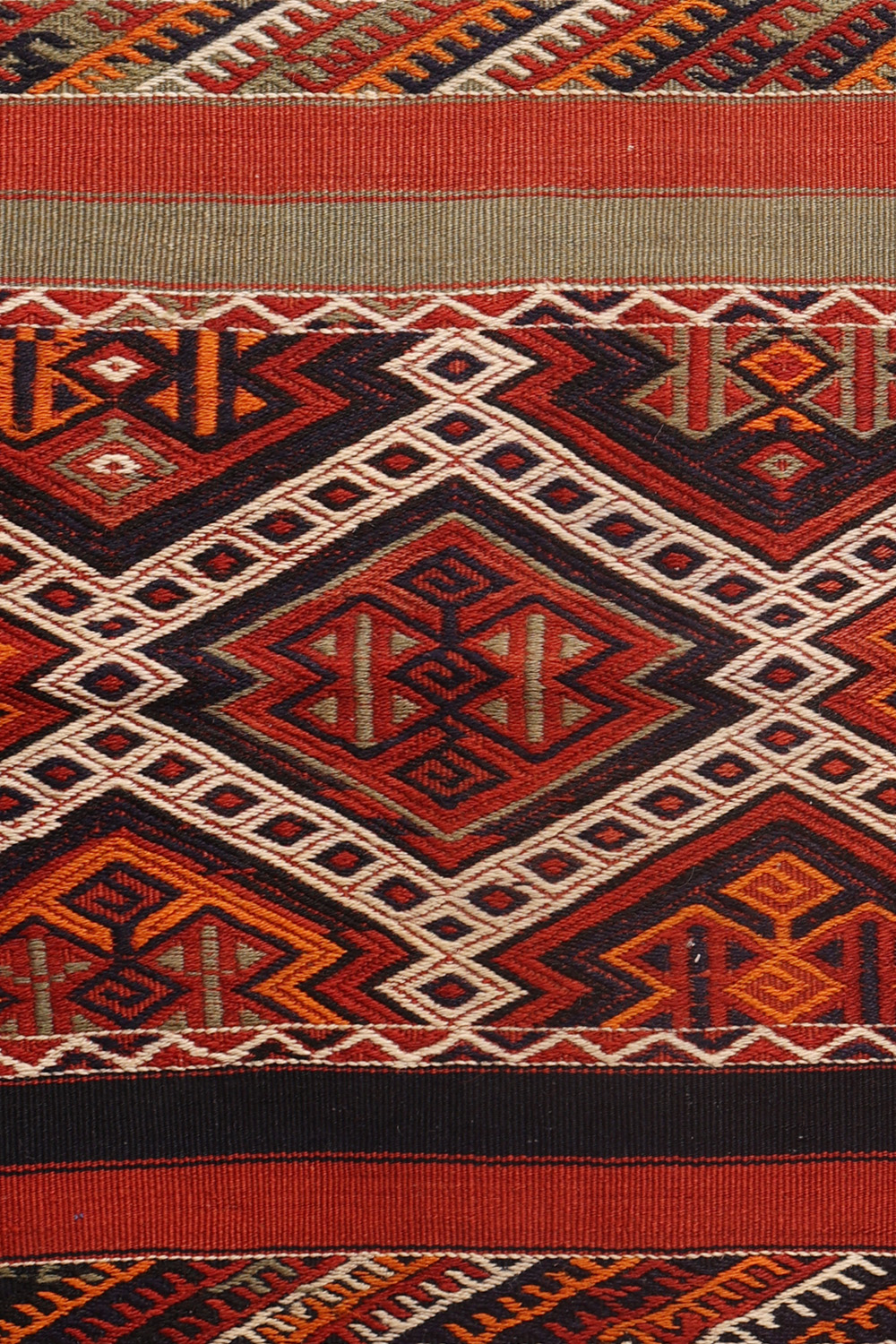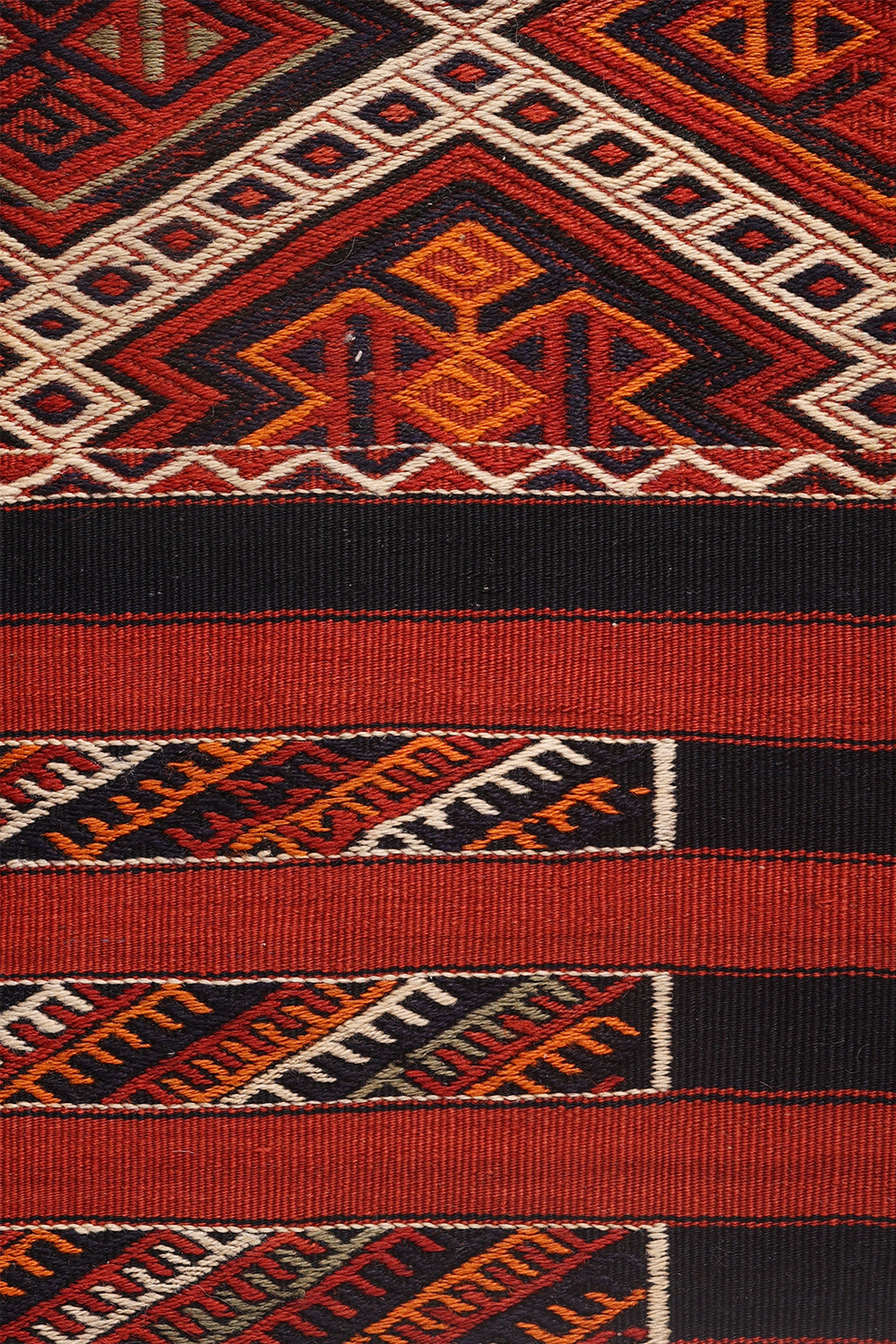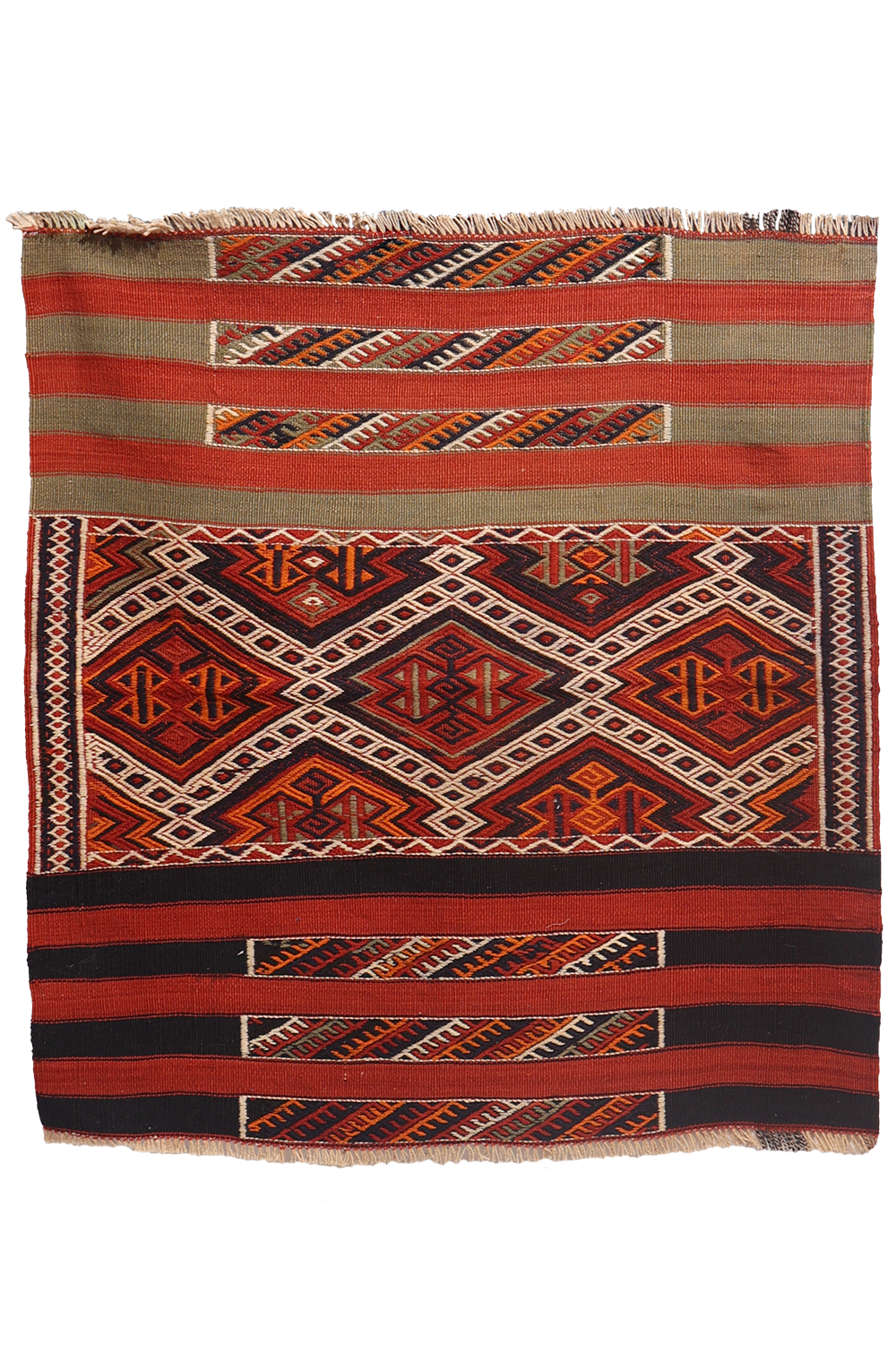225.00 €
This 1950s Kurdish kilim is part of a mafrash or migration bag. The central middle panel is heavely woven with the soumak technique, whilest the two ends combine the flatweave technique with some soumak decoration.
Finely woven with high quality wool.
Material: 100% hand-spun sheep wool
Size: 99×93 cms
Origin: Kurdish tribe from Iran
Date of weaving: 1950s
The mafrash is a woven bag in the form of a box comprising two paralel long sides joined by a base and two shorter end panels. Once filled with bedding, the top is strapeped across to prevent the contents from falling out.
The mafrash is generally made in three parts. The two long sides and the bottom are woven in one piece. The two end panels are woven separately and then sewn to the larger central piece. Each is fastened by a stitched seam on three sides and afterwards bound with a rope-like overcasting. Some mafrash, like those woven by the Qashqai, are woven with top flaps which overlap each other when tied together.
Kurds or Kurdish people are an Iranian ethnic group native to a mountainous region of Western Asia known as Kurdistan, which spans southeastern Turkey, northwestern Iran, northern Iraq, and northern Syria. There are exclaves of Kurds in Central Anatolia, Khorasan, and the Caucasus, as well as significant Kurdish diaspora communities in the cities of western Turkey (in particular Istanbul) and Western Europe (primarily in Germany). The Kurdish population is estimated to be between 30 and 45 million.
1 in stock
Additional information
| Weight | 2.5 kg |
|---|
Subscribe and receive the lastest news
